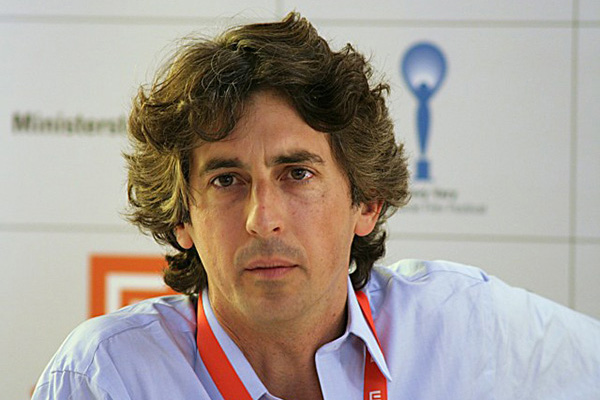
Alexander Payne is known for his satirical portrayals of American society and his obscure humor, having built a successful directing career with critically acclaimed feature films like “Election,” “Sideways” and “The Descendants.” After being delayed for nine years, Payne has finally released his latest film, “Nebraska.”
In a conference call with WSN, Payne spoke about filming “Nebraska,” a movie that tells the tale of stubborn Woody Grant (Bruce Dern), who sets off on a road trip from Montana to Nebraska with his son David (Will Forte) to claim what he believes to be a million-dollar prize.
“My job is film,” Payne said. “What’s the story? What’s the length of the lens? What’s the design of the shot?”
“Nebraska” is shot entirely in black-and-white. Payne explained his reasoning for this stylistic approach.
“When I first read the script nine years ago, the very austere nature of the screenplay, to me, suggested a visual style in black-and-white … in terms of the tonalities and the shadings and how we used production design and costume design,” he said. “It’s a beautiful form.”
“Nebraska” is the first film Payne directed for which he didn’t write the original screenplay.
“I rewrote [the script]. It was not enough to want to seek screen credit because I kept [screenwriter] Bob Nelson’s basic vision and structure intact,” he said.
Many have questioned Payne’s decision to wait nine years before finally producing and releasing “Nebraska.”
“The only reason I didn’t make it nine years ago is because I just finished ‘Sideways’ and it was also a road movie,” Payne said. “I didn’t want to make two road trip movies in a row.”
Payne explained his connection with the state of Nebraska, where most of his feature films take place.
“I’m from there. I like to shoot there” Payne said. “I grew up there and no one else does it there. Where you’re from has an amazing gravitational pull on you.”
Payne united a diverse cast in “Nebraska,” including seasoned professional Bruce Dern and “Saturday Night Live” alum Will Forte, and elaborated on his casting methods.
“I combine three groups of actors, highly seasoned professionals, nonprofessional actors who have been in community theater and nonactors, basica-lly people who have never acted in their lives that bring a certain level of reality to mo-vie,” Payne said. “I bring them together and make sure they are all part of the tapestry. I rarely have characters in mind — I really rely on auditions.”
Payne reflected on what links his films — dark humor and stories of self-realization — and commented on what he wants next in his career.
“I hope, though, in future films, I will have other attributes as well,” he said. “I’ve only made six [films], and I hope to make a lot more that will upset the average a little bit.”
A version of this article appeared in the Thursday, Nov. 14 print edition. Mohamed Hassan is a staff writer. Email him at [email protected].






















































































































































